

The Department of Industrial Engineering serves the State of South Carolina and the nation through teaching, research and outreach in the discipline of industrial engineering. A particular focus for industrial engineering at Clemson University is to be a nationally top-ranked industrial engineering department emphasizing the education, research, discovery and application of knowledge in the following information technology driven emphasis areas.
Transportation, Supply Chain, and Logistics |
Healthcare Systems Engineering |

Transportation challenges in engineering range from automotive manufacturing processes, to the design of information systems used to aid drivers, to the analysis of large-scale traffic flows and design of traffic systems. Supply chain and logistics problems analyze the movement of goods and materials over complex networks. They integrate the decisions related to the procurement of raw materials, to the manufacture and assembly of the product, and all the way to customer delivery. Logistics encompasses many of the supply chain issues, but with a focus on orchestrating the movement of items throughout networks. As a result, these three areas overlap one another, and the synergy created in industrial engineering research efforts lends insights outside of the individual subject areas. Because South Carolina plays a key role in supply chain and manufacturing in the region, these areas have become increasingly important in recent years. Stories:Faculty Experts
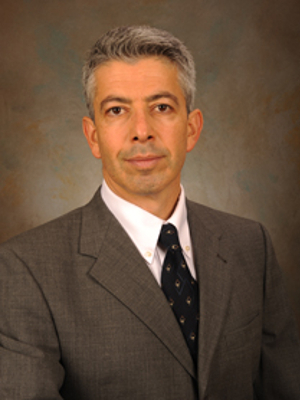
Dr. Burak Ekşioğlu’s work in the supply chain and logistics area focuses on procurement strategies in the presence of product substitution by consumers as well as uncertain supply. In such settings, coordination of decisions between suppliers and manufacturers become complicated. To solve these challenging problems Dr. Ekşioğlu employs stochastic and game theoretic approaches. The primary objective of Dr. Ekşioğlu’s work in the transportation area is to develop an integrated and sustainable intermodal transportation system. This work has been funded by the Department of Transportation. Selected Publications:Rowe, P., B. Ekşioğlu, S.D. Ekşioğlu,“Recycling procurement strategies with variable yield suppliers,” Annals of Operations Research, available online, April 2015.Martagan, T., B. Ekşioğlu, “Game Theoretic Analysis of an Inventory Problem with Substitution, Stochastic Demand, and Uncertain Supply,”International Journal of Inventory Research, 2(1-2), 27-43, 2013. Çapar, Ì., B. Ekşioğlu, J. Geunes, “A Decision Rule for Coordination of Inventory and Transportation in a Two-Stage Supply Chain with Alternative Sources,” Computers and Operations Research, 38(12), 1696-1704, 2011. 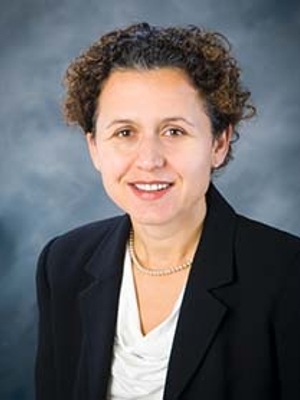
Dr. Sandra Ekşioğlu’s work in this area is focuses on developing mathematical models and solution approaches for large-scale supply-chain related problems. Some of the models she developed capture the availability of different modes of transportation in the supply chain and their impacts on costs and CO2 emissions. Other models capture the impact of product characteristics (such as, perishability, seasonality, spatial distribution, etc.) on supply chain related decisions. Dr. Ekşioğlu uses problem characteristics to develop algorithms to solve these problems which are often nonlinear and stochastic in nature. In addition to conducting research, Dr. Ekşioğlu has organized a number of workshops and summer programs to introduce students and K-12 teachers to this research area. Her work has been funded by NSF, USDOT, and Mississippi DOT. Selected Publications:Palak, G., S.D. Ekşioğlu, J. Geunes, “Analyzing the Impact of Carbon Regulatory Mechanisms on Supplier and Mode Selection Decision: An Application in Biofuel Supply Chain,” International Journal of Production Economics, Vol. 154, 198-216, Aug. 2014.Ekşioğlu S. D. “A Primal-Dual Algorithm for the Economic Lot-Sizing Problem with Multi-Mode Replenishment” European Journal of Operational Research, Vol. 197(1), 93-101, 2009. 
Dr. William G. Ferrell applies operations research models and methods to important problems faced in practice to improve operations. For example, how a company selects the number of vehicles and their routes to deliver a product to scattered customers before the promised deadline can influence how millions of dollars are spent. When the product has a limited lifetime so production must be integrated with distribution, the financial implications and complexity of the problem are dramatically increased. Developing, analyzing and solving models that address these types of issues in a rigorous but practical way characterizes Ferrell’s research that is funded by a variety of industries and government organizations including the Department of Energy and the National Science Foundation. He was also involved in developing the Material Handling and Logistics U.S. Roadmap that speculates on the future systems that will be required to move the volume of freight projected for 2025 and addressing some of these issues is influencing the future research problems that he intends to address. Selected Publications:Devapriya, P., W. Ferrell, and N. Geismar, ”Optimal Fleet Size of an Integrated Production and Distribution Scheduling Problem for a Perishable Product,“ In Final Review for European Journal of Operational Research. Samanlioglu, F., W. Ferrell, and M. Kurz, “An Interactive Memetric Algorithm for Production and Manufacturing Problems Modelled as a Multi-Objective Travelling Salesman Problem,” International Journal of Production Research, 50(20), 5671-5682, 2012Gue, K., E. Akcali, A. Erera, B. Ferrell, G. Forger (2014). Material Handling & Logistics U.S. Roadmap, Material Handling Industry, http://www.mhlroadmap.org/roadmap.html. 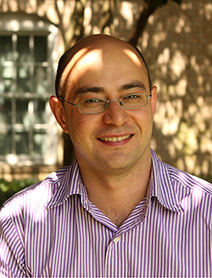
Dr. Amin Khademi has a broad methodological background, and his research primarily focuses on the application of operations research, particularly stochastic optimization in healthcare. Dr. Khademi is also interested in challenging and novel problems in applications related to supply chain management and energy, and ways to solve challenging, applied problems where current techniques fail. Dr. Khademi’s recent research focuses on finding optimal and fair allocation policies for organ transplantation as well as investigating optimal dispatching and redeployment policies of ambulances. Recent Publications:Khademi, A., Saure, D., Schaefer, A., Braithwaite, S., Roberts, M.,“The price of nonabandonment: HIV in resource-limited settings,” Manufacturing and Service Operations Management, forthcoming.Khademi, A., Braithwaite, S., Saure, D., Schaefer, A., Roberts, M., Nucifora, K.,“Should expectations about the rate of new antiretroviral drug development impact the timing of HIV treatment initiation and expectations about treatment benefits,” PLoS ONE 9(6): e98354. doi:10.1371/journal.pone.0098354 
Dr. Mason’s primary current research focuses on how to cost effectively improve supply chain and transportation logistics operations for companies in today’s global economy. Given his endowed chair’s charge to develop and maintain active research relationships with both private and public sector organizations to foster economic development, Dr. Mason’s research in this area has been supported by companies such as Glen Raven Custom Fabrics, Boeing, and Walmart, the South Carolina Department of Transportation, and federal sources such as NSF and the US Air Force. Recent Publications:Cakici, E., Mason, S.J., Geismar, H.N., Fowler, J.W., “Scheduling Parallel Machines with Single Vehicle Delivery,” Journal of Heuristics, 20(5), 511-537, 2014.Masoud, S.A., Mason, S.J., ”A Bi-criteria Hybrid Metaheuristic for Analyzing an Integrated Automotive Supply Chain,“ Journal of the Operational Research Society, to appear, 2015. Nguyen, H.-N., Rainwater, C.E., Mason, S.J., Pohl, E.A., ”Quantity Discount with Freight Consolidation,“ Transportation Research Part E: Logistics and Transportation Review, 66, 66-82, 2014.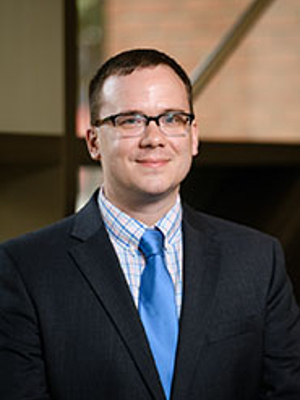
Dr. Neyens’ work in this area examines transportation safety and driving behavior. This includes examining crash data to evaluate the factors that influence crash types, injury severity, and the healthcare costs associated with traffic crashes. Dr. Neyens uses a driving simulator to investigate driver behavior and how drivers respond to system failures within semi-autonomous vehicles in terms of reaction and regaining control of the vehicle. Dr. Neyens’ work in this area has been supported by NHTSA. Selected Publications:Neyens, D.M., L.N. Boyle, & M.T. Schultheis, ”The Effect of Driver Distraction for Individuals with Traumatic Brain Injuries,“ Human Factors, Accepted, 2015.Shen, S. & D.M. Neyens, ”The Effects of Age, Gender, and Crash Types on Drivers’ Injury-related Health Care Costs,“ Accident Analysis and Prevention, 77, 82-90, 2015. Neyens, D.M. & L.N. Boyle, ”The Influence of Driver Distraction on the Severity of Injuries Sustained by Teenage Drivers and Their Passengers,“ Accident Analysis and Prevention, 40(1) 254-259, 2008. 
Dr. Smith’s work in this field includes transportation and logistics problems involving competition or auxiliary considerations. For instance, supply chain procurement problems rarely occur in a vacuum, and must anticipate and accommodate competitors’ future actions. These problems can involve nonlinear, stochastic, and game theoretic considerations, thus necessitating the development of new solution techniques. Other research problems involve generalizations of classic network flow problems (such as the celebrated TSP). Dr. Smith’s research in this area has been supported by the NSF and the Department of Defense. Recent Publications:Behdani,B. and Smith, J.C., “An Integer-Based Approach to the Close-Enough Traveling Salesman Problem,” INFORMS Journal on Computing, 26(3), 415-432, 2014.Prince, M., Smith, J.C., and Geunes, J., “A Three-Stage Procurement Optimization Problem Under Uncertainty,” Naval Research Logistics, 60(5), 395-412, 2013. Penuel, J., Smith, J.C., and Shen, S., “Models and Complexity Analysis for the Graph Decontamination Problem with Mobile Agents,” Networks, 1-19, 2013. 
Dr. Kevin M. Taaffe’s research involves includes problems that address traffic flow, emergency response, and health and humanitarian logistics, with a common thread of improving outcomes for the people involved in the event. Dr. Taaffe has received grants from university transportation centers, as well as other organizations. Selected Publications:Lassiter, K., A. Khademi, and K. Taaffe, “A Robust Optimization Approach to Volunteer Management in Humanitarian Crises,” International Journal of Production Economics, 163, 97-111, 2015.Duanmu, J., K. Taaffe, M. Chowdhury, and M. Robinson, “Simulation Analysis for Evacuation Under Congested Traffic Scenarios: A Case Study,” Simulation: Transactions of the Society for Modeling and Simulation International, 88(11), 1379-1389, 2012. Duanmu, J., M. Chowdhury, K. Taaffe, and C. Jordan, “Buffering in Evacuation Management for Optimal Traffic Demand Distribution,” Transportation Research Part E: Logistics and Transportation Review 48(3), 684-700, 2012. |

Industrial Engineers have increasingly begun to examine contemporary problems related to healthcare. The IE department at Clemson has strengths in this area related to quality, patient safety, optimization, and the use of technology in the field. Researchers in IE have also studied tactical issues such as the optimization of machines used in radiation therapy and proper HIV drug treatment programs, and systematic issues such as transplant operations and clinical trial design. Other areas regard hospital inventory planning, safety analysis and regulations, emergency preparedness, limited resource allocation (such as hospital beds), and personnel scheduling, among other challenges. Because operations research, quality control, and human factors are not universally well understood in the healthcare area, the opportunity exists for the IE department to make transformative gains in partnership with our engineering and medical partners. Stories:Faculty Experts

Using techniques and tools from human factors and systems engineering, cognitive psychology and computing science, Dr. Chalil Madathil conducts basic and applied research to analyze, design and evaluate health informatics user interfaces, care processes, and medical technology to improve the quality of care. Selected Publications:Chalil Madathil, K., Rodriguez, A. J., Greenstein, J. S. & Gramopadhye, A. K. (2014). Healthcare Information on YouTube: A Systematic Review. Health Informatics Journal.Chalil Madathil, K., Koikkara, R., Obeid, J., Greenstein, J. S., Sanderson, I. C., Fryar, K. & Gramopadhye, A. K. (2013). An Investigation of the Efficacy of Electronic Consenting Interfaces of Research Permissions Management System in a Hospital Setting. International Journal of Medical Informatics. Chalil Madathil, K. & Greenstein, J. S. (2011). Synchronous Remote Usability Testing : A New Approach Facilitated by Virtual Worlds. In Proceedings of the SIGCHI Conference on Human Factors in Computing Systems, Vancouver, BC, Canada. 
Dr. Byung Rae Cho’s research in healthcare systems engineering involves Gage R&R and lean Six Sigma in healthcare operations, and has been funded by the Greenville Health System several times. Recent Publications:Goethals, P. and B.R. Cho, “Designing the Optimal Process Mean Vector for Mixed Multiple Quality Characteristics,” IIE Transactions, 44, 1002-1021 (2012).Shin, S. and B.R. Cho, “Studies on a Bi-objective Robust Design Optimization Problem,” IIE Transactions, 41, 957-968 (2009). Cho B.R. “Box on Quality and Discovery with Design, Control, and Robustness,” IIE Transactions, 35(6), 584-586 (2003). 
To address important challenges in bioinformatics, high throughput data technologies are needed to interpret biological data efficiently and reliably. Clustering is widely used as a first step to interpret high dimensional biological data, such as the gene expression data measured by microarrays. A good clustering algorithm should be efficient, reliable, and effective, as demonstrated by its capability of determining biologically relevant clusters. Dr. Ekşioğlu’s work in the healthcare area focuses on addressing this important problem by developing minimum spanning tree based heuristic solution approaches. Selected Publications:Prim, H., B. Ekşioğlu, A. Perkins, ,“Clustering High Throughput Biological Data with B-MST, a Minimum Spanning Tree Based Heuristic” Computers in Biology and Medicine, 62, 94-102, 2015.Pirim, H., B. Ekşioğlu, A. Perkins, Çetin Yüceer, “Clustering of High Throughput Gene Expression Data,” Computers & Operations Research, 39(12), 3046-3061, 2012. 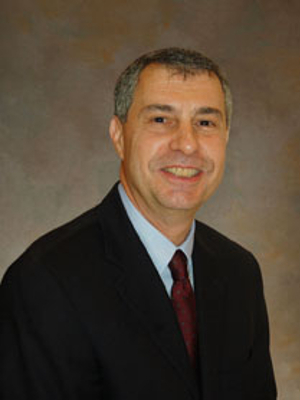
Dr. Greenstein’s research focuses on the development of computer based tools that improve the access healthcare consumers, their families, and their caregivers have to high-quality information. He is currently a member of a research team at Clemson University and the University of South Carolina developing mobile technologies to improve communication and coordination in health care systems. Funded by the National Science Foundation, the team is using mobile devices, learning systems, data analytics, education, and training to enhance communication and coordination among hospital perioperative services personnel. Recent Publications:Gmitro, S. C., Greenstein, J. S., & Wilson, R. P.(2015). Design of a sign-out process to improve surgical safety. To appear in the Proceedings of the 2015 International Annual Meeting of the Human Factors and Ergonomics Society, Los Angeles, CA. Koikkara, R., Greenstein, J. S., & Chalil Madathil, K. (2015). The effect of graphic organizers on the performance of electronic consenting systems. To appear in the Proceedings of the 2015 International Annual Meeting of the Human Factors and Ergonomics Society, Los Angeles, CA. Ramachandran, M., Greenstein, J. S., McEvoy, M., & McEvoy, M. D. (2014). Using a context-sensitive ranking method to organize reversible causes of cardiac arrest in a digital cognitive aid. In Proceedings of the 2014 International Annual Meeting of the Human Factors and Ergonomics Society, Chicago, IL, pp. 788-792.
Dr. Amin Khademi’s primary research interest is in the application of operations research, particularly stochastic optimization in healthcare. Dr. Khademi’s recent research focuses on finding optimal and fair allocation policies for organ transplantation as well as investigating optimal dispatching and redeployment policies of ambulances. The applications that he considers are not limited to healthcare. He is also interested in challenging and novel problems in applications such as supply chain management and energy. Recent Publications:Khademi, A., Saure, D., Schaefer, A., Braithwaite, S., Roberts, M.,“The price of nonabandonment: HIV in sub-Saharan Africa,” Manufacturing and Service Operations Management, forthcoming.Lassiter, K., Khademi, A., Taaffe, K., “A robust optimization approach to volunteer management in humanitarian crises,” Int. J. Production Economics 163 (2015) 97-111. Khademi, A., Braithwaite, S., Saure, D., Schaefer, A., Roberts, M., Nucifora, K., “Should expectations about the rate of new antiretroviral drug development impact the timing of HIV treatment initiation and expectations about treatment benefits,” PLoS ONE 9(6): e98354. doi:10.1371/journal.pone.0098354. 
Dr. Neyens’ work in healthcare centers in applications of human factors in healthcare systems focuses on operator’s behaviors with complex healthcare systems and requires examining patient preference and patient safety with a systems perspective. Dr. Neyens has investigated the introduction of new technology in various settings (e.g., compounding pharmacies, patient informed consent processes, assessing patient preferences). He has also expertise in understanding and evaluating patient safety from a risk acceptance perspective and from incident data. Selected Publications:Neyens, D.M., & A.K Childers (accepted, 2015) Barriers and facilitators for willingness to use a personal health information management (PHIM) system within a worksite wellness program (WWP). American Journal of Health Promotion. Hobbs, M.A., S.N. Robinson, and D.M Neyens (2014) Alcohol-based hand sanitizer (AHS) stations at hospital entrances: The effect of the location on visitors’ utilization rates. Poster presented at the Human Factors and Ergonomics Society 2014 International Symposium on Human Factors in Health Care, March 16-19, 2014. 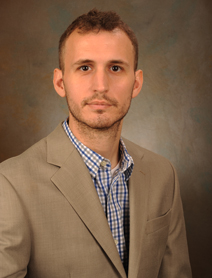
Dr. Robert J. Riggs’ research incorporates integer programming and combinatorial optimization, healthcare systems engineering, Six Sigma and process improvement, applying lean enterprise to healthcare and manufacturing applications, and optimization of disassembly and remanufacturing systems. Recent Publications:Riggs, R.J., Battaïa, O., & Hu, S.J. (2015). Disassembly line balancing under high variety of end of life states using a joint precedence graph approach. Journal of Manufacturing Systems.Riggs, R.J., Jin, X., & Hu, S.J. (2015). Two-stage sequence generation for partial disassembly of products with sequence dependent task times. Procedia CIRP, 29, 698-703. Riggs, R.J. & Hu, S.J. (2013). Disassembly liaison graphs inspired by word clouds. Procedia CIRP, 7, 521-526. Yang, S., Riggs, R.J., & Hu, S.J. (2012). Modeling and analysis of closed loop manufacturing systems using paremeter coupling. Journal of Manufacturing Systems, 32(4), 817-824. 
Dr. Sara Lu Riggs’ work in this field has focused on display design, primarily focusing on supporting task sharing, attention management, and interruption management. Dr. Riggs has also conducted work addressing systems level challenges within the NICU to improve communication between doctors, nurses, and specialists during the rounding process and to develop a means to assess and improve safety culture on a day-to-day basis. Dr. Riggs’ research has been supported by the AHRQ. Selected Publications:Lu, S., Wickens, C., Prinet, J., Hutchins, S., Sarter, N., & Sebok, A, ”Supporting Interruption Management and Multimodal Interface Design: Three Meta-Analyses of Task Performance as a Function of Interrupting Task Modality,“ Human Factors, 55(4), 697-724, 2013.Lu, S., Nemshak, M., Schumacher, R., & Seagull, F.J. (2013). Identifying, quantifying, and projecting single-day quality measures within the neonatal ICU. In Proceedings of the 57th Annual Meeting of the Human Factors and Ergonomics Society (pp. 1760-1764). San Diego, CA. September. Li, H., Lu, S., Schumacher, R., & Seagull, F. (2011). Why multidisciplinary rounds are not multidisciplinary: Examination of a neonatal ICU rounding process. In Proceedings of the 55th Annual Meeting of the Human Factors and Ergonomics Society (pp. 758-762). Las Vegas, NV. September. 
Dr. Kevin M. Taaffe’s healthcare research involves the improvement of patient flow, as well as the communication and coordination of staff tasks, on the day of surgery. The operating room, and functions that support it, must be correctly planned and staffed for patient care to be delivered consistently and with high quality. Thus, another key element is appropriately planning for the day of surgery days or weeks in advance. Dr. Taaffe has been supported by NSF, AHRQ, and multiple hospitals as well. Selected Publications:Uddin, M., N. Huynh, J. Vidal, K. Taaffe, L. Fredendall, and J. Greenstein, “Evaluation of Google’s Voice Recognition and Sentence Classification for Health Care Applications,” Engineering Management Journal, 27(3), 152-162, 2015.Taaffe, K., L. Fredendall, N. Huynh, and J. Franklin, “Computer Simulation Shows the Effect of Communication on Day of Surgery Patient Flow,” AORN Journal, 102(1), 60.e1-60.e14, 2015. Hosseini, N. and K. Taaffe,, “Allocating Operating Room Block Time using Historical Caseload Variability,” Health Care Management Science, in press, DOI: 10.1007/s10729-014-9269-z.. |
Energy Systems Design and Security |
Production and Manufacturing Systems |

Energy-related problems in operations research comprise one of the hottest areas for funding in research in the engineering community. IE at Clemson features environmental strengths in various areas, especially in optimizing the processing of biofuels. This line of research intersects with existing expertise in supply chain optimization. Power networks typically involve extraordinarily complex problems that are made over uncertain data, along with imperfect infrastructure. These problems can, for instance, study the design of smart grids that are resilient to spikes in demand, or that maximize the combined efficiency of various power sources such as wind, wave, solar, nuclear, and fossil fuels. Securing these networks is not only important with respect to accidental failures, but also with respect to intentional attacks. A complementary research area thus involves the fortification of infrastructure in anticipation of a malicious entity that seeks to maximize damage to critical systems. These systems extend beyond energy networks, and include defense, transportation, production, and other systems. Stories:Faculty Experts

Dr. S.D. Ekşioğlu has contributed in this area of research by developing models which integrate production and supply chain decisions of bioenergy production plants. Her models identify supply chain network designs to deliver biomass (in the form of, forest products and waste, agricultural and animal waste etc.) to bioenergy plants. These models capture a wide spectrum of factors which impact supply chain decisions, such as, product quality, disruptions in the transportation network, financial incentives (such as, production tax credits), environmental policies (such as, clean power plan), etc. These models not only optimize their impact of supply chain decisions on costs, but also, their impacts on the environment and society. Her work in this area has been funded by agencies such as, NSF, USDOT, and USDOE. Selected Publications:”Handbook of Bioenergy“ S.D. Ekşioğlu, S. Rebennack, P.M. Pardalos (eds), Springer Publishers, 2015.Marufuzzaman, M, S.D. Ekşioğlu, R. Hernandez, ”Environmentally Friendly Supply Chain Planning and Design for Biodiesel Production via Wastewater Sludge,“ Transportation Science, 48(4), 555-574, 2014. Marufuzzaman, M, S.D. Ekşioğlu ”Designing a Reliable and Dynamic Intermodal Hub-and-Spoke Supply Chain for Biomass Delivery,“, To appear in Transportation Science 
Dr. Mason’s research efforts focus on supply chain viability, infrastructure disruptions, and integrating renewable energy resources into the electrical grid. In these systems, conditions are often unknown and/or frequently changing such that strategic, deterministic analyses are insufficient and can lead to misleading conclusions. The inherent uncertainty in these problems leads to many different solution techniques, including stochastic optimization, scenario-based analyses, and multi-level optimization modeling using distributed computing. The NSF, DHS, and AFOSR have supported Dr. Mason’s research in this area. Selected Publications:Gedik, R., Medal, H., Rainwater, C.E., Pohl, E.A., Mason, S.J., “Vulnerability Assessment and Re-Routing of Freight Trains under Disruptions: A Coal Supply Chain Network Application,” Transportation Research Part E: Logistics and Transportation Review, 71, 45-57, 2014.Madadi, O.A., Kurz, M.B., Mason, S.J., Taaffe, K.M., “Supply Chain Design Under Quality Disruptions and Tainted Materials Delivery,” Transportation Research Part E: Logistics and Transportation Review, 67, 105-123, 2014. Medal, H., Sharp, S.J., Pohl, E., Rainwater, C., Mason, S.J., “Models for Reducing the Risk of Critical Networked Infrastructures,” International Journal of Risk Assessment and Management, 15(2-3), 99-127, 2011. 
Dr. Smith’s primary current research area examines how to optimally secure critical infrastructure using operations research. Many such problems seek to assess network robustness by conducting interdiction analyses. These problems range from determining the vulnerability of a system to distributed and coordinated attacks (or accidental failures), to prescribing how a system should be fortified against attackers that adapt to fortified networks. Because Dr. Smith’s work models telecommunication, energy, transportation, and other related networks, agencies recently funding his research include AFOSR, ONR, DARPA, and DTRA. Selected Papers:Romich, A., Lan, G., and Smith, J.C., “Optimizing Placement of Stationary Monitors,” IIE Transactions, 47(6), 556-576, 2015.Sullivan, K.M., Smith, J.C., and Morton, D.P., “Convex Hull Representation of the Deterministic Bipartite Network Interdiction Problem,” Mathematical Programming, 145(1-2), 349-376, 2014. Shen, S., Smith, J.C., and Ahmed, S., “Expectation and Chance-constrained Models and Algorithms for Insuring Critical Paths,” Management Science, 56(10), 1794-1814, 2010. |

IE at Clemson has traditional strengths in improving multiple facets of production and manufacturing systems, ranging from assembly operations, ergonomics considerations, cognitive factors in high-tech production processes, scheduling and layout optimization, and other issues related to the systematic design of manufacturing systems. The IE department is known for its contributions to quality control theory and methodology, which is especially critical in the context of production and manufacturing. Faculty Experts

Dr. Cho’s recent research in the area of production and manufacturing systems involves multivariate analysis for the processes with mixed quality characteristics and statistical inference for special populations. Selected Publications:Goethals, P. and Cho, B.R., “Designing the Optimal Process Mean Vector for Mixed Multiple Quality Characteristics,” IIE Transactions, 44, 1002-1021 (2012).Cha, J. and Cho, B.R., ”Classical Statistical Inference Extended to Truncated Populations for Continuous Process Improvement: Test Statistics, P-values, and Confidence Intervals,“ Quality and Reliability Engineering International, 31, 1807-1824 (2015). 
The stochastic lot-sizing problem with piecewise linear concave ordering costs is very common in practice since it relates to a variety of settings involving quantity discounts, economies of scales, and use of multiple suppliers. Dr. Ekşioğlu’s work in this area focuses on implementing the (R, S) policy which is appealing from a practical point of view because it completely eliminates the setup-oriented nervousness - a pervasive issue in production control. Selected Publications:Tunc, H., O.A. Kilic, S.A. Tarim, B. Ekşioğlu, “The Stochastic Lot Sizing Problem with Piecewise Linear Concave Ordering Costs,” Computers and Operations Research, 65, 104-110, 2016.Shin, S., B. Ekşioğlu, “An Empirical Study of RFID Productivity in the U.S. Retail Supply Chain,”International Journal of Production Economics, 163, 89-96, 2015. Tunc, H., O.A. Kilic, S.A. Tarim, B. Ekşioğlu, “A reformulation for the stochastic lot sizing problem with service-level constraints,” Operations Research Letters, 42(2), 161-165, 2014. 
Bill Ferrell applies operations research models and methods to important problems faced in practice to improve operations with much of his work in this area focusing on material flow through storage facilities. For example, many unit load containers moved in warehouses can now be stacked for movement and stored both stacked and two deep. Nearly all routing algorithms for equipment moving these unit loads in warehouses are distance based; however, activities required to stack and move the unit loads can be significant, so time-based model are needed for improved operations and this is a current research interest. Ferrell also works on operational issues for storage facilities in future logistics systems like high volume, high velocity mixing centers with decentralized control, a topic that is currently only starting to be investigated. Selected Publications:Hassan A. and W. Ferrell, ”Reducing Warehousing Costs with Stackable Pallets and Multi-command Operations,“ Proceeding of the 17th International Working Seminar on Production Economics, Innsbruck, 2012. Erol, I. and W. Ferrell, Jr., “A Methodology to Support Decision Making Across the Supply Chain of an Industrial Distributor” International Journal of Production Economics, 89(2), 119-129, 2004. 
Dr. Tugce Isik’s work focuses on decision making under uncertainty in manufacturing and service systems. Often, control of these system involves policies that dynamically respond to changing demand and congestion levels. Common issues include management of the workforce, costs, and service levels. Dr. Isik's research provides management strategies for agile manufacturing and service systems using techniques from queueing and stochastic optimization theory. Selected Publications:Isik, T., Andradottir, S. & Ayhan, H., ’Optimal Control of Queueing Systems with Non-Collaborating Servers,“ Queueing Systems, Under Review, 2014. 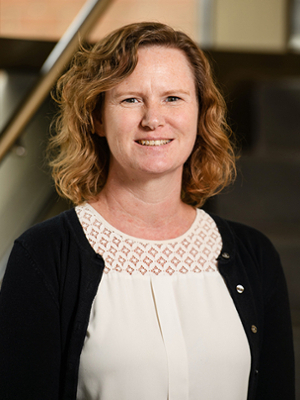
In the area of Production and Manufacturing Systems, Dr. Kurz focuses on assembly systems. Her industry-funded work on line balancing and variety (configuration) management focuses on solving industry-relevant problems that utilize large data sets with incomplete and error-prone data. Dr. Kurz and her collaborators have published in a variety of outlets that emphasize the implementation of the developed results. Selected Publications:Phelan, K., Wilson, C., Summers, J., Kurz, M., (2014), “A Case Study of Configuration Management Methods in a Major Automotive OEM”, International Design Engineering Technical Conferences and Computers and Information in Engineering Conference, Buffalo, NY, DETC2014-34186.Antani, K., Pearce, B., Mears, L., Renu, R., Kurz, E., Schulte, J. (2014), “Application of System Learning to Precedence Graph Generation for Assembly Line Balancing”,Proceedings of 2014 ASME International Manufacturing Science and Engineering Conference (MSEC2014), Paper No. MSEC2014-3906, Detroit, MI, USA, June 9-13, 2014. Accepted. (3rd Place Best Paper) Madadi, AliReza; Mary E Kurz; Kevin M Taaffe; Julia L Sharp; Scott J Mason, December 2014, “An Interactive Memetic Algorithm for Production and Manufacturing Problems Modeled as Multi-objective Traveling Salesman Problem”, International Journal of Production Research, Vol. 50(20), 5671-5682. 
Dr. Mason’s work in this field includes practically motivated production scheduling problems in semiconductor manufacturing, public education busing, and automotive manufacturing. The complex realities inherent in real world systems leads to the necessity for developing fast, effective, real-time heuristic solution methodologies that can be deployed in practice. Dr. Mason’s research in this area has been funded by a number of industrial organizations and research consortiums. Selected Publications:Cheng, J., Fowler, J.W., Kempf, K., Mason, S.J., ”Multi-mode Resource-constrained Project Scheduling Problems with Non-preemptive Activity Splitting,“ Computers & Operations Research, To appear, 2014. Mason, S.J., Chen, J.-S., , “Scheduling Multiple Orders per Job in a Single Machine to Minimize Total Completion Time,” European Journal of Operational Research, 207(1), 70-77, 2010.Mönch, L., Fowler, J.W., Dauzere-Peres, S., Mason, S.J., Rose, O., “A Survey of Problems, Solution Techniques, and Future Challenges in Scheduling Semiconductor Manufacturing Operations,” Journal of Scheduling, 14(6), 583-599, 2011. 
Dr. Robert J. Riggs’ research incorporates integer programming and combinatorial optimization, healthcare systems engineering, Six Sigma and process improvement, applying lean enterprise to healthcare and manufacturing applications, and optimization of disassembly and remanufacturing systems. Selected Publications:Riggs, R.J., Battaïa, O., & Hu, S.J. (2015). “Disassembly line balancing under high variety of end of life states using a joint precedence graph approach.” Journal of Manufacturing Systems.Riggs, R.J., Jin, X., & Hu, S.J. (2015). “Two-stage sequence generation for partial disassembly of products with sequence dependent task times.” Procedia CIRP, 29, 698-703. Riggs, R.J. & Hu, S.J. (2013). “Disassembly liaison graphs inspired by word clouds.” Procedia CIRP, 7, 521-526. Yang, S., Riggs, R.J., & Hu, S.J. (2012). “Modeling and analysis of closed loop manufacturing systems using paremeter coupling.” Journal of Manufacturing Systems, 32(4), 817-824. 
Dr. Taaffe’s research addresses the role of customer choice in the manufacturer or supplier’s plans on providing sufficient product to meet the demands. Individual customers have unique price points, however each customer will have a tendency to be more or less reliable in actually purchasing the product. Dr. Taaffe works on problems where risk must be measured and included in the decision or objective, and he has received numerous industry grants to study manufacturing processes using simulation and optimization techniques. Selected Publications:Madadi, A., M.E. Kurz, K. Taaffe, J. Sharp and S. Mason, “Supply Network Design: Risk-Averse or Risk-Neutral?,” Computers and Industrial Engineering, 78, 55-65, 2014.Taaffe, K., J. Geunes, and H.E. Romeijn, “Supply Capacity Acquisition and Allocation with Uncertain Customer Demands” European Journal of Operational Research 204(2), 263-273, 2010. Taaffe, K., H.E. Romeijn, and D. Tirumalasetty, “A Selective Newsvendor Approach to Order Management,” Naval Research Logistics 55(8), 769-784, 2008. |